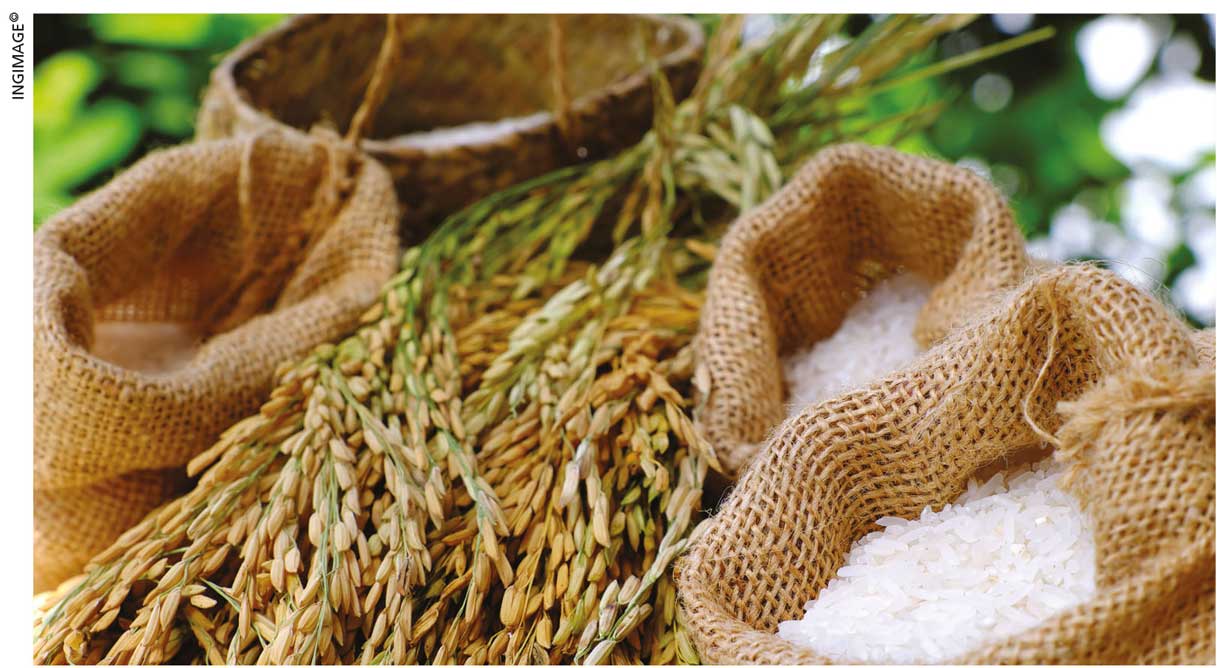AGRICULTURE INDUSTRYAGRICULTURE INDUSTRY
POST-COVID FOOD SECURITY
Akila Wijerathna explains how a fully-blown food crisis can be averted

Though the global food system was undermining human health even before 2020, the pandemic has placed unprecedented stress on its supply chains. Indeed, COVID-19 has drastically impacted the flow of food from farm to table due to bottlenecks in labour, processing, transport and logistics, as well as momentous shifts in demand.
Economic hardships were instigated by the enforcement of physical distancing rules, and limits on internal and external logistics in the food supply chain. The direct impact on farm populations and production was much less than on the food supply chain because most small farmers in developing countries rely on family labour.
Having said that, the farming sector was indirectly affected by the pandemic due to the disruption of input supply chains, and a reduction in consumer demand as a consequence of lower or lost incomes and other economic impacts of COVID-19.
The effects were greater in segments downstream such as retail and food services; and this increased food prices – both as a cause and consequence of food shortages, and restrictions on supply chain logistics. This was followed by speculative hoarding that triggered further price increases. And higher food prices in turn were likely to signal impending shortages.
COVID-19 affected the economy and food security in two ways.
Firstly, it impacted people’s welfare and food security, as well as the economy, due to declining incomes and loss of employment. Secondly, these effects compounded each other in a vicious cycle that threatened to cause social unrest. This was mainly observed in the dense urban and rural areas.
In the case of short-term effects, lockdown measures in many countries destroyed opportunities for poor people – especially those working in the informal sector in urban areas and earning daily wages.
Furthermore, markets were shut down very often and this interrupted value chains or agricultural delivery systems, resulting in consumers being cut off from their food supplies.
For instance, the FAO and a couple of other international agencies estimated that over 100 million people had experienced problems with food security by the end of 2020.
In the long run, it has been recognised that agriculture forms a resilient part of the livelihoods of many rural and urban households. In Sri Lanka particularly, many people have their home, or small-scale commercial gardens or farms, in their villages. This arm of agriculture has been resilient against shocks such as the pandemic.
However, it was not as resilient to other shocks.
We should keep in mind that in addition to the pandemic, ad hoc crises such as locust infestations, droughts and floods were also affecting farmers and smallholders. And in such instances, local supply chains were weakened.
According to the UNDP, the severe long-term effects of the pandemic could push an additional 207 million people into extreme poverty on top of the current trajectory and bring the total to over one billion by 2030.
Therefore, for a robust structure that looks beyond individual crises, we need to diversify income and food supplies – from both local and international sources. We require open markets and the active supply of local produce in these markets. This will enable people to retain agriculture as their backbone and fallback in spite of a range of issues for some but not all crises.
To achieve post-COVID food security, Sri Lanka’s national priorities must realign with UN Sustainable Development Goals (SDGs) including SDG 1 – No Poverty; SDG 2 – Zero Hunger; SDG 3 – Good Health and Wellbeing; SDG 8 – Decent Work and Economic Growth; SDG 11 – Sustainable Cities and Communities; and SDG 17 – Partnerships to achieve the transformative vision of the SDGs by 2030.
However, political tensions that have been stirred by the pandemic and a trend towards hardening of national borders could threaten SDG 16, which calls for the promotion of peace and justice, and safety from violence; and SDG 17, which calls for a strengthening of international partnerships.
The government must provide logistical support to farmers to help them despatch their produce to consumers. Farmers are essential to feed the citizenry and they require timely support – particularly those involved in primary production, processing, logistics and marketing.
However, to prevent the greater danger of a food crisis, agriculturists are also calling for favourable policies that will support smallholders.
Everything we do during and after this crisis must be with a strong focus on building inclusive and sustainable economies, as well as societies that are able to the face shocks such as pandemics, climate change and the many global challenges there are.
And since we have learned several lessons, corporations should use the momentum of this pandemic as an opportunity to redesign their supply chains with future resilience in mind.



